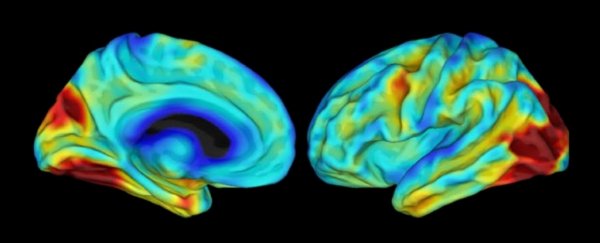Among the world's largest family to suffer from Alzheimer's, one older woman may hold the key to future prevention.
For generations, thousands of her relatives in the city of Medellín, Colombia, have been plagued by a genetic mutation (known as E280A), which leads to early onset dementia – what locals call "La Bobera", or "the foolishness".
This particular genetic quirk only impacts a small subset of Alzheimer's patients, many of whom live in this one city, and it almost always leads to cognitive decline, beginning as early as age 44.
For decades, neurologists have been fascinated by this mutation and the family that carries it. But of the 6,000 or so living members in this large extended clan, there's one individual who stands out.
Despite having the same genetic risk as many of her relatives and a brain filled with hallmark signs of Alzheimer's, this woman's memory has remained remarkably resilient.
In fact, neurologists say this lady did not show any signs of cognitive decline until she reached her 70s, which is three decades later than expected.
Now, researchers think they've figured out why, and it might have to do with another chance mutation.
Scanning the brains and sequencing the genomes of 1,200 family members, the team has discovered a rare genetic quirk that could provide immunity to early onset.
The authors suspect two copies of a gene called APOE3 Christchurch are responsible for her good fortune, as the woman appeared to be the only one in the group that had both. Those with just one copy of the variation still showed early onset cognitive decline.
Neuroscientist Yadong Huang from the Gladstone Institutes in San Francisco who was not involved in the research told Science magazine the case was "very special" and may open up new avenues for research and therapy.
But while Michael Greicius of Stanford University agrees, calling the study "excellent and thought-provoking", he reminded STAT News this was just one case, and an exceedingly uncommon one at that.
In fact, this woman's 'genetic pedigree', he says, may be wholly unique, and that could make it really difficult to extend to other patients.
The authors of the study, on the other hand, think her special genes are an asset.
"She has a secret in her biology," Colombian neurologist Francisco Lopera told The New York Times.
"This case is a big window to discover new approaches."
When scanning the woman's brain, the researchers say they found the highest levels of amyloid proteins.
These clumps are hallmarks of Alzheimer's disease, and while they were once thought to trigger the disease, no drugs that have targeted them have worked as yet. Instead, another hallmark, known as tau has started receiving more attention.
Just like her relatives, the Colombian woman's genetic mutation, E280A, is linked to the over-production of amyloid plaques. But instead of progressing further, the authors think her additional mutations are somehow postponing the process, potentially by hindering the rapid spread of tau.
At this stage, the idea is just a hunch, but previous studies have linked variations in APOE, a major cholesterol-carrying protein, to Alzheimer's and tau pathology.
"This study underscores the importance of APOE in the development, treatment, and prevention of Alzheimer's, not to mention the profound impact that even one research volunteer can have in the fight against this terrible disease," neuroscientist Eric Reiman from the Banner Alzheimer's Institute told the Harvard Gazette.
"We hope that our findings galvanize and inform the discovery of APOE-related drug and gene therapies, such that we can put them to the test in treatment and prevention studies as soon as possible."
This, however, could simply be wishful thinking. There are thousands of other genomes at play, and while APOE is a good lead, much more research will need to be done before we can say for sure what its relationship is to this common neurological disease.
The study was published in Nature Medicine.
